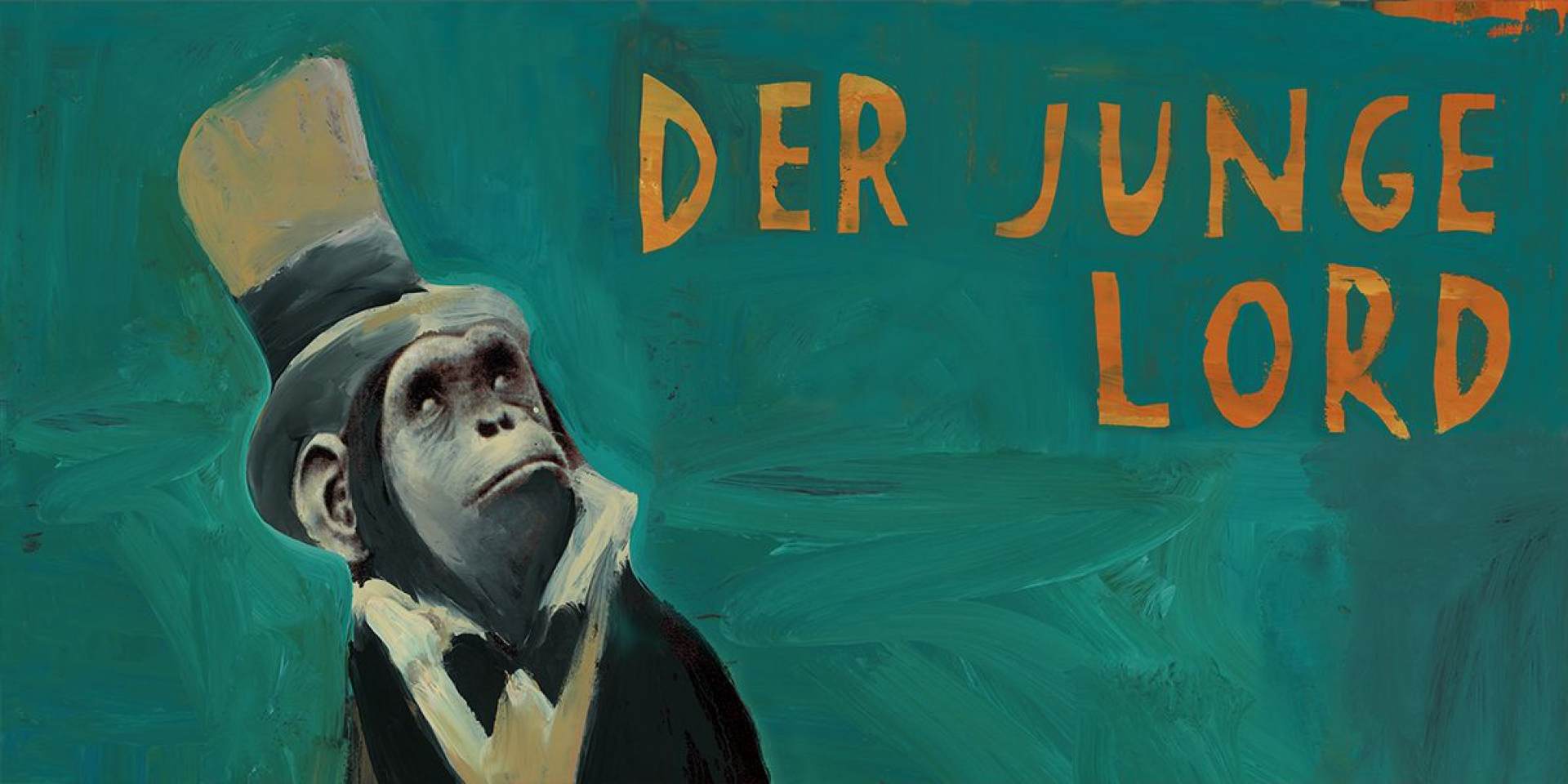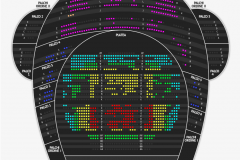Der Junge Lord
May 2025 | ||||||
|---|---|---|---|---|---|---|
Mo | Tu | We | Th | Fr | Sa | Su |
A multifaceted German composer, Hans Werner Henze (1926 - 2012) boasts a production that ranges from symphonic music to film music to opera.
The sixth work in his catalogue, Der junge Lord was composed in 1964 to a libretto by his friend the writer Ingeborg Bachmann, who was inspired by the fairy tale The Ape as Man by Wilhelm Hauff, a 19th-century German fable writer. Its debut at the Deutsche Oper in Berlin in 1965 under the direction of Christoph von Dohnányi caused such a sensation that the opera was soon staged in the major European theatres. In an imaginary German provincial town, the life of the inhabitants is turned upside down by the arrival of an English nobleman, the enigmatic Lord Edgar, with his unlikely entourage of bizarre characters. Among them is also his nephew, the young Lord Barrat, who attracts and worries the other protagonists of the opera with his strange ways. In order to keep up with the new arrivals, the inhabitants try to please the young Lord in every way, only to discover at the end that they have been deceived: in the guise of Lord Barrat there is in fact a trained monkey from a circus.
Although there are typical elements of the comic opera of the eighteenth-century tradition that give it an apparent lightness, Henze's work is nevertheless a bitter reflection on the hypocrisy of the right-thinking society and on the marginalization of the individual, themes translated into a writing that is at times corrosive and cutting even if inserted in the reassuring context of tonality.
New staging
First performance in Italy in the original language
Synopsis
The opera is in two acts of three scenes each, linked by interludes.
Sir Edgar, an English gentleman and scientist, visits a small German town with a vast entourage, including black slaves and a large collection of animals. The townspeople are curious about the new personage in their town, but Sir Edgar is initially aloof to the townsfolk. Through his secretary, Sir Edgar declines all invitations to social events, and the townspeople become angry at this attitude. In scene 2 of act 1, the Baroness Grünwiesel hosts a tea and expects Sir Edgar to attend, but he does not, via a note from his Moor servant. The Baroness promises revenge on Sir Edgar for this slight. In scene 3, a traveling circus sets up their show in front of Sir Edgar's residence. Sir Edgar leaves his house for the first time since his arrival, and enjoys the circus performance. However, when city officials try to talk with Sir Edgar, he again refuses. The city officials then shut the circus down, but Sir Edgar invites the circus troupe into his mansion.
At the start of act 2, several months have elapsed. A lamplighter hears screams and groans from Sir Edgar's mansion. He reports this to the town mayor, who demands an explanation from Sir Edgar. Sir Edgar's secretary explains that the noises are from Lord Barrat, Sir Edgar's nephew (the 'young lord' of the title), who has arrived recently in Germany and is learning German, but is making mistakes and is punished with lashings. However, the prospect of a pending social event at Sir Edgar's mansion becomes evident. This is fulfilled in scene 2 of act 2, where Lord Barrat is presented to the townspeople at a social event at Sir Edgar's mansion. Lord Barrat behaves eccentrically, but the townsfolk are charmed and begin to imitate his actions. Luise, the ward of the local baroness, had previously been in love with Wilhelm, a student, but now has become enamoured of the 'young lord'. Finally, in the climactic dance, Lord Barrat's attire falls from him, and he is revealed as a trained ape.
Program and cast
RUNNING TIME
Approximately 2 hours and 30 minutes (intermission included)
ARTISTS
Conductor: Markus Stenz
Director: Daniele Menghini
Sets: Davide Signorini
Costumes: Nika Campisi
Lights: Gianni Bertoli
Maggio Musicale Fiorentino Orchestra and Chorus
Chorus master: Lorenzo Fratini
Children choir of the Maggio Musicale Fiorentino Academy
Children chorus master: Sara Matteucci
Sir Edgars Sekretär: Levent Bakirci
Lord Barrat: Matteo Falcier
Begonia: Caterina Dellaere
Der Bürgermeister: Andreas Mattersberger
Oberjustizrat Hasentreffer: Yurii Strakhov
Baronin Grünwiesel: Marina Comparato
Luise: Eleonora Bellocci
Ida: Nikoletta Hertsak
Wilhelm: Antonio Mandrillo
Amintore La Rocca: James Kee
Teatro del Maggio Florence State Opera Italy
Teatro del Maggio is in the centre, close to the old city walls, next to the historic Stazione Leopolda. The garden that welcomes visitors is Piazzale Vittorio Gui, named after the founder of the Stabile Orchestrale Fiorentina and the Maggio Musicale Fiorentino.
By train
Santa Maria Novella is Florence's main train station.
From there you can reach the theatre with a short walk (about 10-15 minutes) or by taking the tram (a stop) or a taxi.
By car
The Opera di Firenze is just outside the ZTL area.
It is possible to park near the Parco delle Cascine or for a fee in the Porta al Prato car park (Via Elio Gabbuggiani, 7) and in the Piazza Vittorio Veneto car park.
By bus
Lines C1, C2 and D (Leopolda stop);
Lines 17 and 23A-B (stop Via delle Carra);
Lines 17B-C, 22, 23N, 23 and 57 (Pierluigi da Palestrina stop);
Lines 29, 29B, 29BA, 29BC, 29D, 30A, 30B, 30AC, 35 and 35° (stop Leopolda - Porta al Prato; Capolinea).
By tram
Line T1 (stop Porta al Prato - Parco della musica).

 EN
EN DE
DE IT
IT FR
FR ES
ES RU
RU JP
JP RO
RO
 Seating plan
Seating plan 